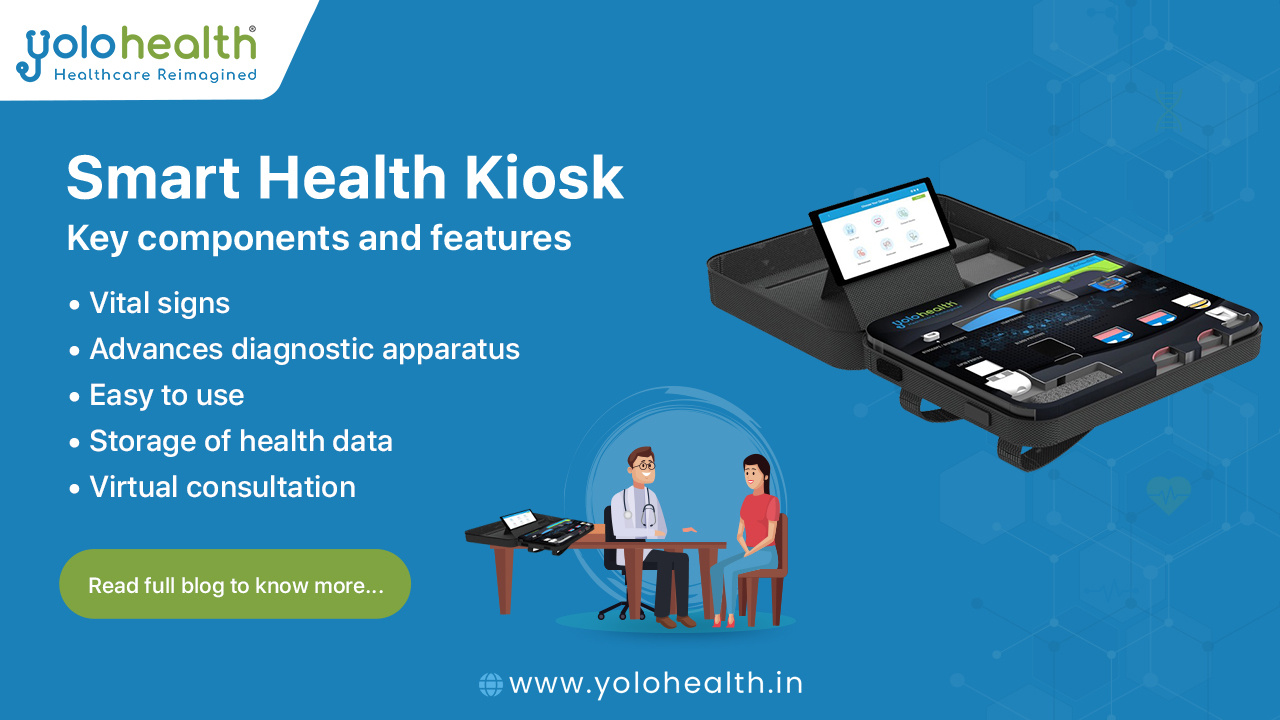Smart Health Kiosk
A Smart health kiosk is a touch-operated self-service station innovated to render health and medical-related services to users. It is embedded with sensors and devices that help in measuring vital signs like blood pressure, heart rate, body temperature, body oxygen levels, and weight.
Many advanced Kiosks offer advanced features such as reading ECG readings and virtual consultations with doctors and health professionals from their remote locations. These Kiosks can easily be found in the location of different parks, malls, pharmacies, workplaces, and, therefore, people have access to convenient healthcare facilities without visiting their doctors and clinics.
Smart health kiosk key features
• Vital signs: Smart health kiosks have inbuilt sensors that help track the patient’s vital signs, including blood pressure, heart rate, body temperature, blood oxygen level, weight, and BMI.
• Advances diagnostic apparatus: Apart from showing the patient’s vital signs, health kiosk has advanced diagnostic tool as ECG, body composition analysis, blood glucose, and cholesterol test.
• Easy to use: the health kiosk is touch screen and user-friendly with instructions on how to operate a kiosk on a step-by-step process making it accessible to nearly everybody and people with lesser health literacy.
• Storage of health data: With some smart health kiosks, users can create, store, and make available their health records for future use. This gives a doctor the access to historical health information of that user. Health data from users are stored in the cloud, which means users can access it using apps and websites on mobile devices.
• Virtual consultation: Some intelligent health kiosk offers the virtual consultation feature with doctors and healthcare providers. Here, the patient can discuss his or her results with the doctor remotely.
The primary advantages of the smart health kiosks are;
• Convenience: The user can know his or her health status at any time without having to schedule an appointment through the smart health kiosk.
• Cost-saving: They save the user from making frequent visits to healthcare providers, clinics, doctors, or hospitals.
• Preventive health system: The adoption of smart health kiosks enables proactive management of health of patients with chronic health conditions.
• Data record: Patients can keep a record of their health data for long periods of time, and these smart health kiosk records and stores the results.
Applications of smart health kiosks:
• Retail and pharmacy: Pharmacies and drug stores offer simple health care through smart health kiosks.
• Workplaces: Currently, companies include health kiosks in their workplaces to create awareness for preventive health care.
• Public health programs: The kiosks are installed by governments or health organizations in public areas for maximum awareness and prevention.
• Telemedicine and teleconsultation: most smart health kiosks, they have their own telemedicine service that allows their patients to find a remote doctor consultation even far places with basic infrastructures regarding health care
• Hospitals and clinics: hospitals and clinics allow patients to use this kind of gadget also people can start to take primary assessment before actually consulting a physician.
In summary, smart health kiosks are an innovation in the healthcare industry offering wide-ranging benefits, such as convenience, early detection, and cost savings. They cannot replace professional medical care but play an important role in proactive health management and thus improving access to healthcare services.

